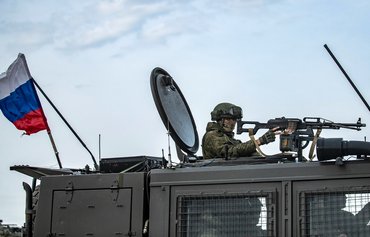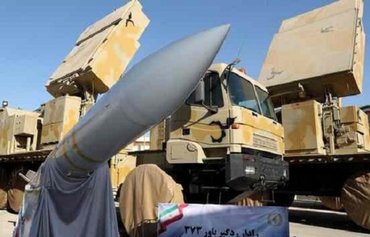A new set of military agreements signed between Damascus and Tehran lend legitimacy to the Iranian presence in Syria, specifically the presence of the Islamic Revolutionary Guard Corps (IRGC), a military expert said.
The agreements, signed Monday (August 27th), are a transparent ploy by the IRGC to stay in Syria and circumvent international demands that it stop its interventions in the countries of the region, including Syria, he told Al-Mashareq.
Iranian news agencies reported that Syrian defence minister Ali Abdullah Ayoub and his Iranian counterpart Amir Hatami had signed a military and defence co-operation agreement between the two countries.
According to the Tasnim agency, Hatami said the agreement aims to "strengthen the defence infrastructure in Syria, the main guarantor of the continuation and maintenance of peace".
Hatami added that the military and defence co-operation agreement allows for continued Iranian "presence and participation" in Syria.
Iran's military attache to Damascus said Tuesday that his country's military advisers would remain in Syria under the defence agreement, AFP reported.
"Support for Syria's territorial integrity and the independence of Syrian sovereignty were also emphasised in the agreement," Brig. Gen. Abolghasem Alinejad said.
'Completely transparent'
"The military agreements have many facets, but as they relate to the situation in Syria the move is completely transparent," said security expert and military analyst Maj. Gen Abdul Karim Ahmed, who is retired from the Egyptian military.
"Without question, these aim to strengthen the IRGC’s presence in Syria," he told Al-Mashareq.
Iran’s defence minister made it clear the agreements allow for "presence and participation", which means they provide legal cover to that presence in order to circumvent international demands that the IRGC stop its regional interventions, Ahmed said.
Military co-operation signals a permanent Iranian presence in Syria, he said.
Further, he added, the talk of "defence" undoubtedly implies the inclusion of platforms to launch short and long range missiles as well as military aircraft -- tools of intimidation used by Iran in the region.
"Although the military agreements are legal and approved by the governments of both countries, it is possible to pressure the Syrian government to annul them unilaterally since the matter relates to its security," he said.
"However this would require bringing international pressure to bear on both parties, to put an end to the Iranian presence in Syria," he said.

![The Syrian and Iranian defence ministers take part in a press conference following the signing of a new military agreement. [Photo via Syrian and Iranian websites, circulated on social media]](/cnmi_am/images/2018/08/29/14241-Syria-Iran-press-600_384.jpg)





